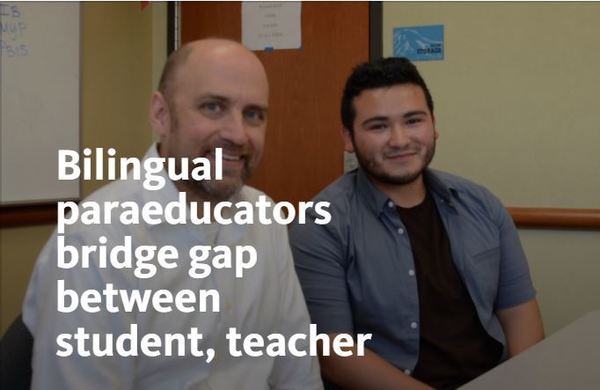Paraeducators support teachers with classroom instruction and management. But as the number of students whose first language is not English grows, paraeducators who are bilingual can find themselves in another role: translator.
That’s been the case for Gami Diaz Lizama, a paraeducator in Highline Public Schools in Des Moines who speaks English and Spanish. He said bilingual paraeducators — often referred to as “paras” — help English-only teachers better connect with and inspire all of their students.
“Paraeducators are there to be the support for teachers, students and families, especially bilingual paras when it comes to a student and family that just came to the school and that only speak a certain language,” he said. “We speak the language (and are) there to help that bond.”
Bilingual skills are highly valued and sought after by school districts as they work to ensure public educators better reflect the diversity of their communities.
Washington has more than 1 million students in kindergarten through 12th-grade, and for nearly 11 percent of them, English is their second language.
Bernard Koontz, Highline’s executive director of language learning and teacher development, said he doesn’t just want to recruit bilingual paraeducators. He wants them to eventually become teachers.
Read the rest of the story on the governor’s Medium page.

